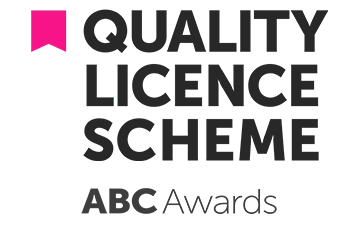

In 1990 the concept of the environmental management system (EMS) was new to many organisations. However, it has subsequently developed very rapidly, becoming the subject of a number of international standards and schemes. The first national environmental management standard, BS7750, was published in 1992 and the European Union (or Community as it was then called) adopted the same basic approach in 1993 with the introduction of its Eco-Management and Audit Scheme (EMAS). An international standard, ISO 14001, replaced BS 7750 in 1996. In this course we look at how these standards and schemes have developed, the differences between them, and what benefits an organisation can expect to gain from adopting a recognised EMS.
While neither ISO 14001 nor EMAS prescribe the level of environmental performance to be achieved, they do require a commitment to continual improvement. The extent of this improvement is for the individual organisation to decide and should be quantified in objectives and targets where practicable. At first glance, continual improvement may appear to be a particularly onerous commitment, but it is vital if the environmental management system is to be seen as credible by interested parties. This course looks at the importance and benefits of continual improvement, how it can be achieved, and how some of the barriers to its achievement can be overcome.
Any organisation undertaking a programme of continual improvement needs not only to establish procedures for its work processes but also to regard all procedures, and the processes to which they relate, as being capable of improvement. This course focuses on what is involved in improving work procedures and processes in order to reduce the environmental impacts of your organisation.
A sudden environmental crisis - such as a large fire, explosion, release of toxic gas or major water pollution incident - is probably the most feared occurrence by individuals with responsibility for an organisation's environmental performance. However, slow-acting pollution incidents can create a crisis that damages not only the environment but also the organisation, both financially and in terms of its reputation - and the reputation of its products - among the public.
Emergency planning is required to deal with any incident that could result in loss of life, ill health or damage to the environment.
By the end of the course you should be able to:
(Session One)
(Session Two)
(Session Three)
(Session Four)
Syllabus:
Environmental Management Systems, Schemes and Standards
1.1 Environmental management principles
1.2 Environmental management systems and standards
1.3 Main elements of EMAS
1.4 Main elements of ISO 14001
1.5 Strategic environmental management
1.6 Integrated management
Continual Improvement
2.1 What is continual improvement?
2.2 Benefits of improved environmental performance
2.3 Challenges to the implementation of an improvement programme
2.4 The importance of commitment
2.5 Implementing a continual improvement programme
2.6 Sustainable development
Working Methods
3.1 The importance of environmental procedures
3.2 Assessment of procedures and processes
3.3 Implementing changes to procedures and processes
Response to Damage to the Environment
4.1 Fire, explosion and toxic gas releases
4.2 Contaminated land
4.3 Pollution of surface water
4.4 Emergency plans
This course has been accredited by Online Academies. On successful completion of this course you will be able to download or print off a PDF of your Online Academies Certificate (please note: you will also be given the opportunity to have a hard copy of the certificate printed off and posted out to you for a small additional charge). If you would like to view a sample of the certificate, please click here.

Online Academy work with Quality Licence Scheme (Quality Licence Scheme). The Quality Licence Scheme is part of the Skills and Education Group, a charitable organisation that unites education and skills-orientated organisations that share similar values and objectives. With more than 100 years of collective experience, the Skills and Education Group’s strategic partnerships create opportunities to inform, influence and represent the wider education and skills sector.
At the conclusion of each module there is a multiple choice question assessment. This will help you remember the main points of the lesson and act as a check that you have retained the essential knowledge and understanding of that particular section. The results can be seen instantaneously and you can correct wrong answers. When the result is satisfactory you can progress to the next module.
Once you have successfully completed all the modules for your course you will be awarded:
A Diploma issued by Online Academies



